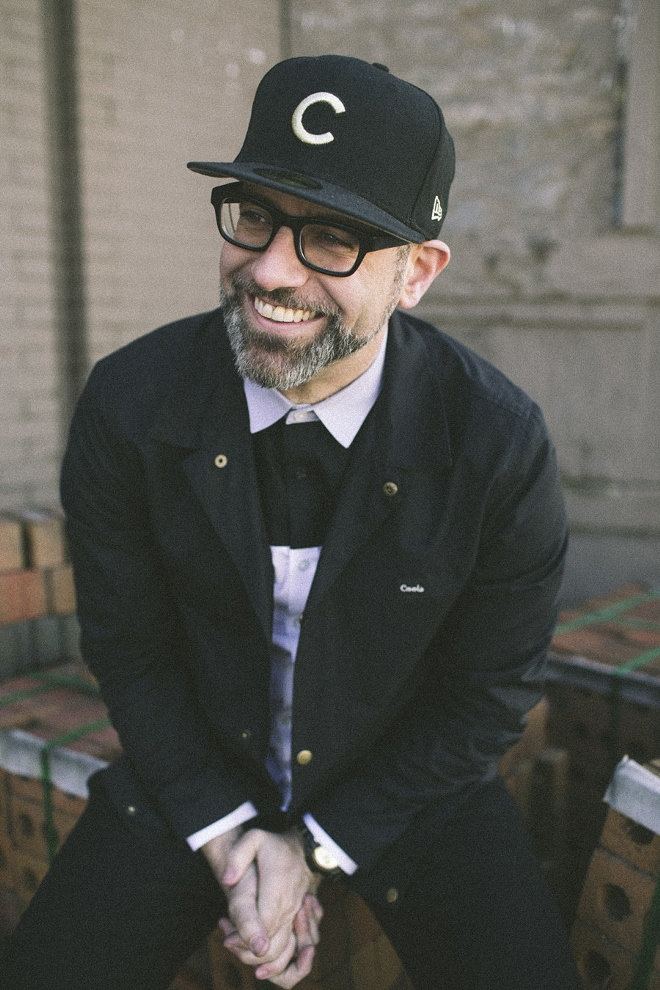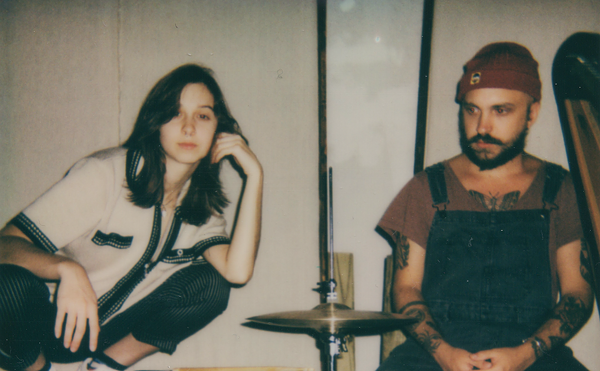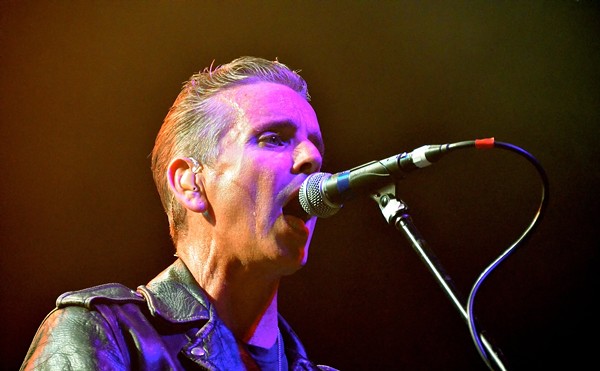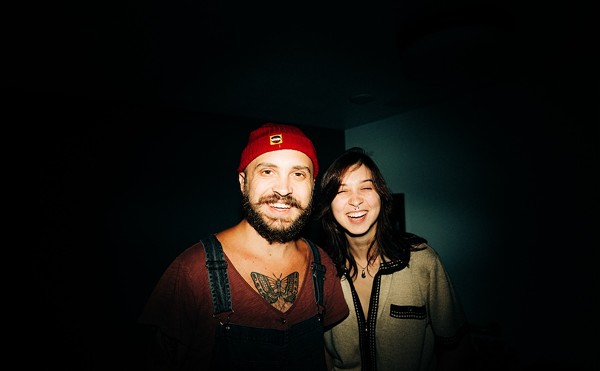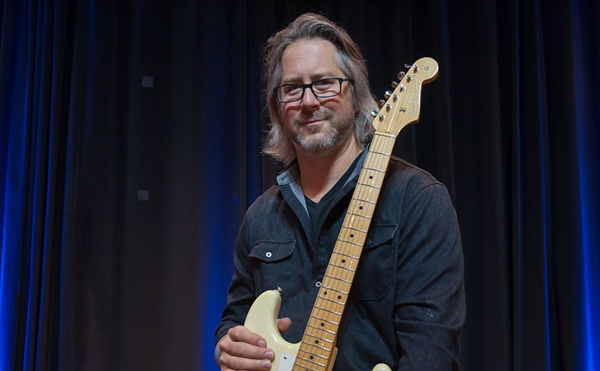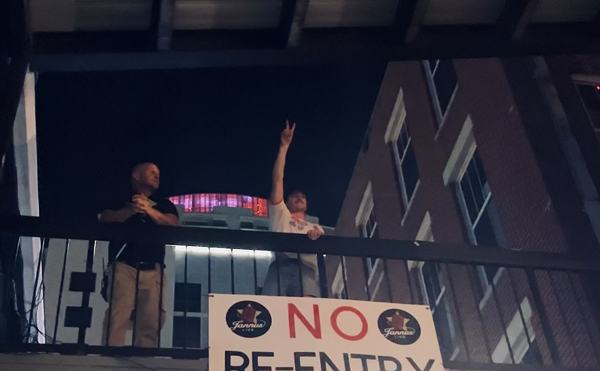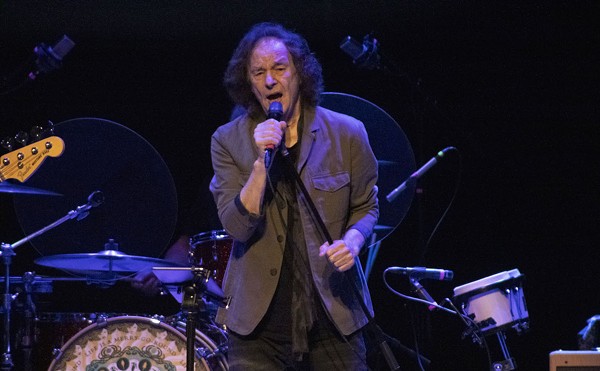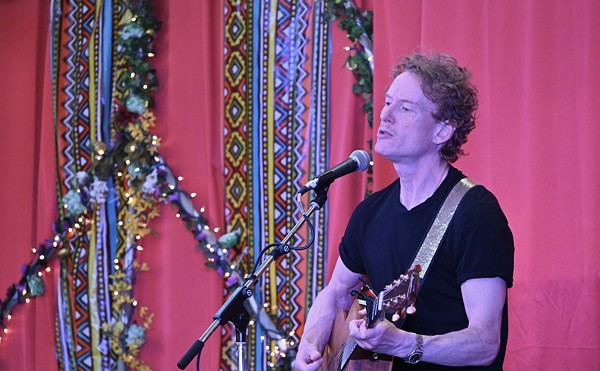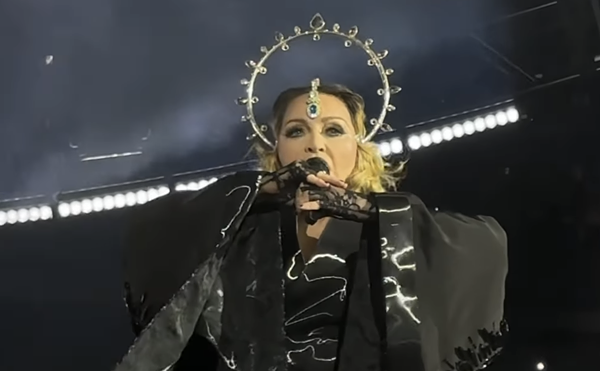Kevin Coval is a poet, educator, and community organizer in the City of Chicago. In his latest book, A People’s History of Chicago, Coval traces the history of area from its settlement by Native Americans to Chief Keef’s Lollapalooza performance and beyond. He co-founded and directs the Louder Than a Bomb slam poetry festival in addition to the Young Chicago Authors program, through which he mentored such artists as Noname and Chance the Rapper.
A People’s History of Chicago is out now on Haymarket Books, with a foreword by Chance the Rapper, who comes to the Amalie Arena on June 14.
Read excerpts from our Q&A with Coval below, and get more information on Chance the Rapper's Tampa show via local.cltampa.com.
Call your local bookstore to see if they carry A People's History of Chicago.
How did writing these poems effect your perception of yourself as a Chicagoan, especially as it relates to your own family history?
There’s a big history here man…I learned about how, in some ways, Chicago was a sanctuary for my family—which is a story for many ethnic groups and immigrant groups. I grew up learning those stories from my family, and as a kid of course you’re kind of annoyed that you continue to get the same narratives again and again. And then I was also learning an oral history, or oral poetic, from the hip hop music I was listening to, and these things began to interweave in such a way that was increasingly fascinated by narrative and what that means to one’s relationship to place.
That, and how important it is to be able to tell the story about where you come from, which is something that was both essential and indigenous to the practice of hip-hop, and also something essential and indigenous to the practice of being immigrants. I think my interest in being a writer is rooted in the maintenance of those ideas, and I think being a Chicagoan means that your are prideful about where you come from, and that you also are in a constant state of wrestling with the totality of what that means; including some of the brutal aspects of the city, as well as uplifting and championing some of the beautiful things that often will be left out of the conversation that I think we need to be having about the city.
Like what you talked about in your Trevor Noah interview—changing the narrative from Chicago as this militant state to something more positive, and bringing people who are on the come-up to center stage.
I think we can imagine—and know—why some of the conversations remain as they do, in an archaic and ultimately racist series of tropes and misunderstandings about neighborhoods in the city of Chicago. There are large forces that have a lot to gain from the maintenance of those conversations, and the maintenance of fear and ignorance when it comes to who is in the neighborhoods. And so part of what we see our work being is creating spaces where there is more actual radical democratic practice, carving out space in the civic sphere for more and more people from a greater variety of backgrounds to come and share their own experiences about what is to not only be from a place, but how to change it, how to make it better and safer for all people.
What did your research process for this book look like?
We have a great tradition in this city of really incredible listeners, people like Ida B. Wells and Studs Terkel, Gwendolyn Brooks…people who spent a majority of their day hearing what’s happening in the city from people who live and experience it. I have a real incredible privilege of being with so many young storytellers, and older folks too, in the city, and I get to learn and listen about what it means to be in Chicago at this moment.
Part of the excavation of the historical record has been to see how we came to be at such a gross inequity in terms of our distribution of public goods, how our city remains in a moment of hyper-segregation and how it came to be that way. I just started to dig, like I would with liner notes when I was listening to hip hop records as a young person and didn’t know who Curtis Mayfield was or the Staples Singers were…whoever Q-Tip happened to be sampling for the composition of a record.
I sat down to write a book on gentrification, which is the book I’m writing now, but it became this historical excavation and remix of our city’s story because I wanted to have a better understanding of how we arrived at this moment. I would spend a lot of time in the stacks of the library. I would read a lot of books and talk to a lot of people. Of course, I’ve learned more from just listening to people talk than anything else—people talk about how their neighborhood was, and who made an impact in their neighborhood and in their lives.
I wanted to also champion people who had been forgotten in some ways from the history of the city, or really put on for people who I think have made an impact in the culture for the many. So I chose to kind of focus on some of those stories. I really love to celebrate the city, and I also think that we need to hold certain aspects of our city and certain individuals to task too. So my hope is that the book does both of those things.
How do you find someone who has been forgotten?
Ask around—like, I mention Frankie Knuckles a lot in the book, but I chose to write a poem about Ron Hardy, who I think is equally important to Chicago house. It’s not that we don’t know Ron Hardy, but I just don’t think that we talk about him enough. And it’s not that we talk about Frankie enough, and it’s not a slight in that regard. What I look for in retelling history is who has a compelling story that I also feel drawn to as a poet, in order to craft a narrative that will do the work of being a good poem and also relating to a larger public the import of a particular individual, or a particular moment in time.
The first time you met Chancellor Bennett, a.k.a. Chance the Rapper, he was 13, and he had some bars to read you. What do you remember from that experience?
I don’t remember specifically what the bars were, but I do remember that he was really earnest. You know with a lot of young people I’m like ‘I see you, and it will really be on you to come again, to write more.’ He continued to come to the workshop and then he began to show up at the open mic, and I knew pretty early on that he was for real about the work, and I think that’s what drew me to him initially—his dedication and belief in himself. I think that that’s rare in such a young person, to know that regardless of where they begin that they have the ability to become great.
As a mentor to Chance, in what ways have you seen his voice as a poet change since that first meeting, and in what ways has it stayed the same?
I think that his field of vision has expanded some. He’s enmeshed in the best of both hip hop poetics and the rich tradition of Chicago storytelling, which I think aesthetically is about realist working class portraiture. So I think Chance is at his best, and I do think he is one of the best, when he is talking about his perspective off of 79th. And you hear this time and again when he delves into the narratives about who he is where he comes from and getting at the physical space, but also I think he is a genius when it comes to understanding and relating to a wider audience, with the emotional complexities of being a young person in the city of Chicago at this time. He has done an incredible job of being an advocate for the city, being a champion of young people, and I think it comes from his ability to relay incredibly complex ideas in a short amount of space. In that regard, he is one of our city’s finest poets.
\\<\/iframe\>
